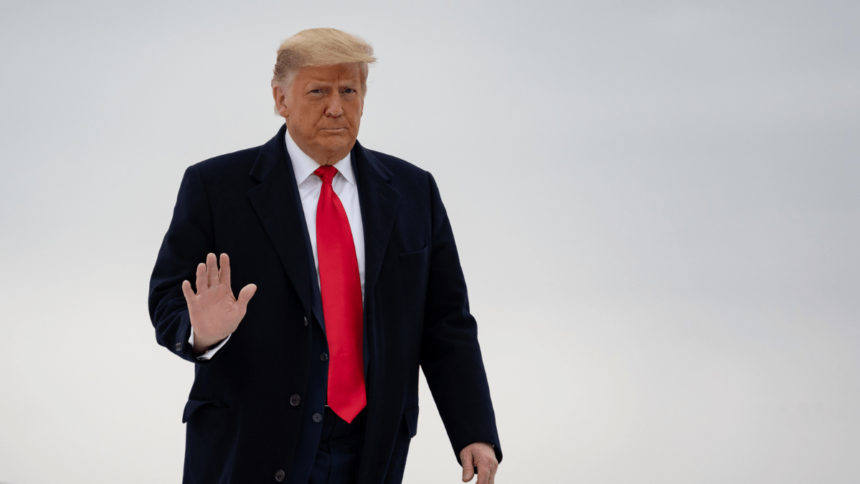He also put at risk the gains made in other areas of health and development, and jeopardized the trust that organizations like Avac had built with communities in need.
The limited waiver issued by the US state department doesn’t provide much relief. While it allows for certain exemptions, such as funding for pregnant women to access anti-HIV pills, it falls short of addressing the broader impact of the funding freeze.
The stories shared by the journalists in Kenya during the Pepfar-funded media project highlight the importance of independent reporting and holding governments and organizations accountable. The impact of their work went beyond just raising awareness about HIV; it led to tangible changes in behavior and policy.
The training model used in the project served as a blueprint for similar initiatives in other countries and across different media platforms. Journalists who were trained in HIV reporting went on to take up leadership positions in media houses, NGOs, and academia, further amplifying the impact of the program.
The recent actions by the Trump administration not only threaten to undo years of progress in the fight against HIV but also undermine the broader health and development initiatives supported by Pepfar. The trust and relationships built with communities over the years are at risk of being eroded, making it even more challenging to address the complex health issues facing vulnerable populations.
In times of uncertainty, it is crucial for governments and organizations to prioritize the health and well-being of all individuals, regardless of their political affiliations. The lessons learned from the Pepfar-funded projects serve as a reminder of the power of media in driving positive change and the importance of sustained investment in health and development programs.
Furthermore, the Trump administration’s decision to cut funding to Pepfar and limit access to preventive anti-HIV medication is not only affecting current programs but also derailing progress in the fight against HIV/AIDS. The sudden freeze in funding has caused disruptions in services and has led to layoffs in various organizations. Trust between the US government and its partners has been shattered, and the impact of this decision is likely to be long-lasting.
In South Africa, where Pepfar funds 17% of the health department’s annual HIV budget, the consequences of these cuts could be devastating. Health Minister Aaron Motsoaledi has warned that 15,000 health workers could lose their jobs if funding is not restored. The closure of Pepfar-funded programs, such as transgender clinics and men’s health clinics, is already impacting vulnerable populations who rely on these services.
While change was expected in Pepfar funding, the abrupt and drastic nature of the Trump administration’s decision has left many organizations scrambling to find alternative sources of funding. The lack of clarity on how programs will be evaluated and funded in the future has created uncertainty and fear among those working in the HIV/AIDS field.
Ironically, the Trump administration’s actions are undermining the very values that Pepfar represents – global security, diplomacy, and well-being. By cutting funding and limiting access to life-saving medication, the administration is jeopardizing the progress that has been made in the fight against HIV/AIDS.
Ultimately, the decision to cut funding to Pepfar and limit access to preventive anti-HIV medication is a cruel and inhumane display of power. It is a reminder of the importance of sustained and strategic investments in public health, and the devastating consequences of political decisions made without consideration for the lives and well-being of those affected.
As the global community continues to grapple with the HIV/AIDS epidemic, it is crucial that we stand together in solidarity and continue to fight for the rights and health of all individuals, regardless of their gender identity or sexual orientation. The fight against HIV/AIDS is far from over, and we must not let political decisions derail the progress that has been made.
The HIV community is facing a new challenge as the tools needed to control the epidemic are at risk of disappearing. With the potential loss of funding from organizations like Pepfar and the Global Fund, drug manufacturers are in danger of losing the support needed to provide life-saving antiretroviral medications to millions of people worldwide.
In the past, HIV activists successfully fought against Big Pharma for lower ARV prices, but now they may need to rely on these same companies for continued access to medication. The Trump administration’s actions are putting pressure on the HIV fight, and it is crucial for policymakers and activists to strategize and push back against any threats to progress.
Warren, a prominent figure in the HIV community, emphasizes the importance of not allowing the US government to derail efforts to combat the epidemic. It is up to all stakeholders to step up and ensure that access to ARVs is maintained for those in need.
The Bhekisisa Centre for Health Journalism is closely monitoring the situation and providing updates on the ongoing fight against HIV. Stay informed by signing up for their newsletter and joining the conversation on health advocacy.
As the HIV community faces new challenges, it is essential to remain vigilant and united in the fight against the epidemic. By working together and leveraging the resources available, we can continue to make progress in bringing the epidemic under control.








